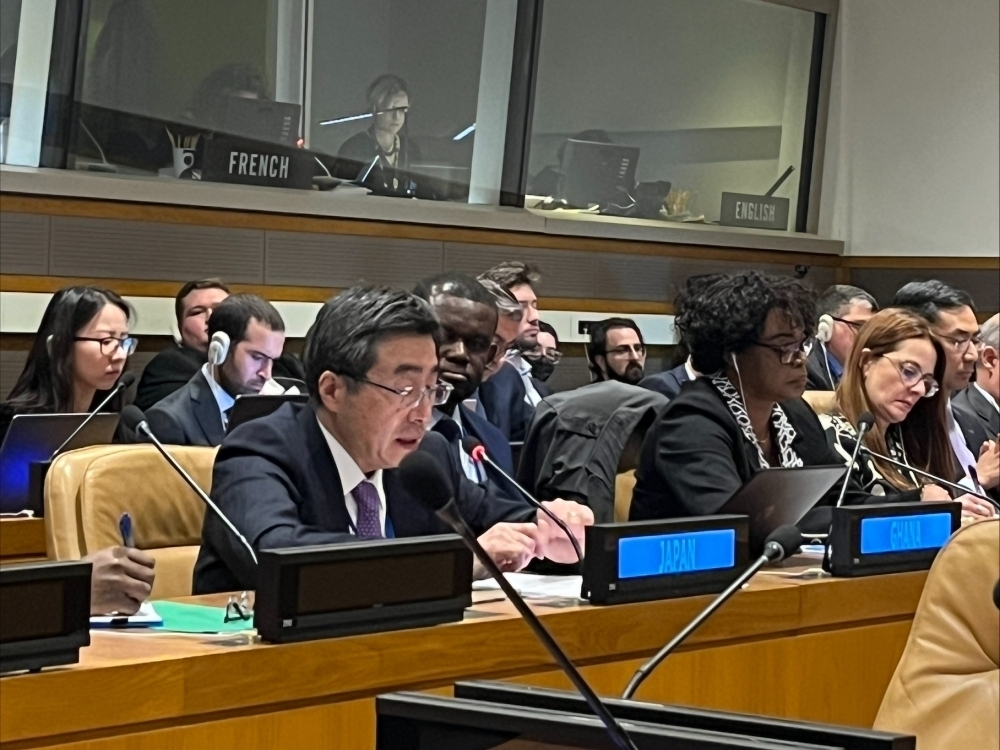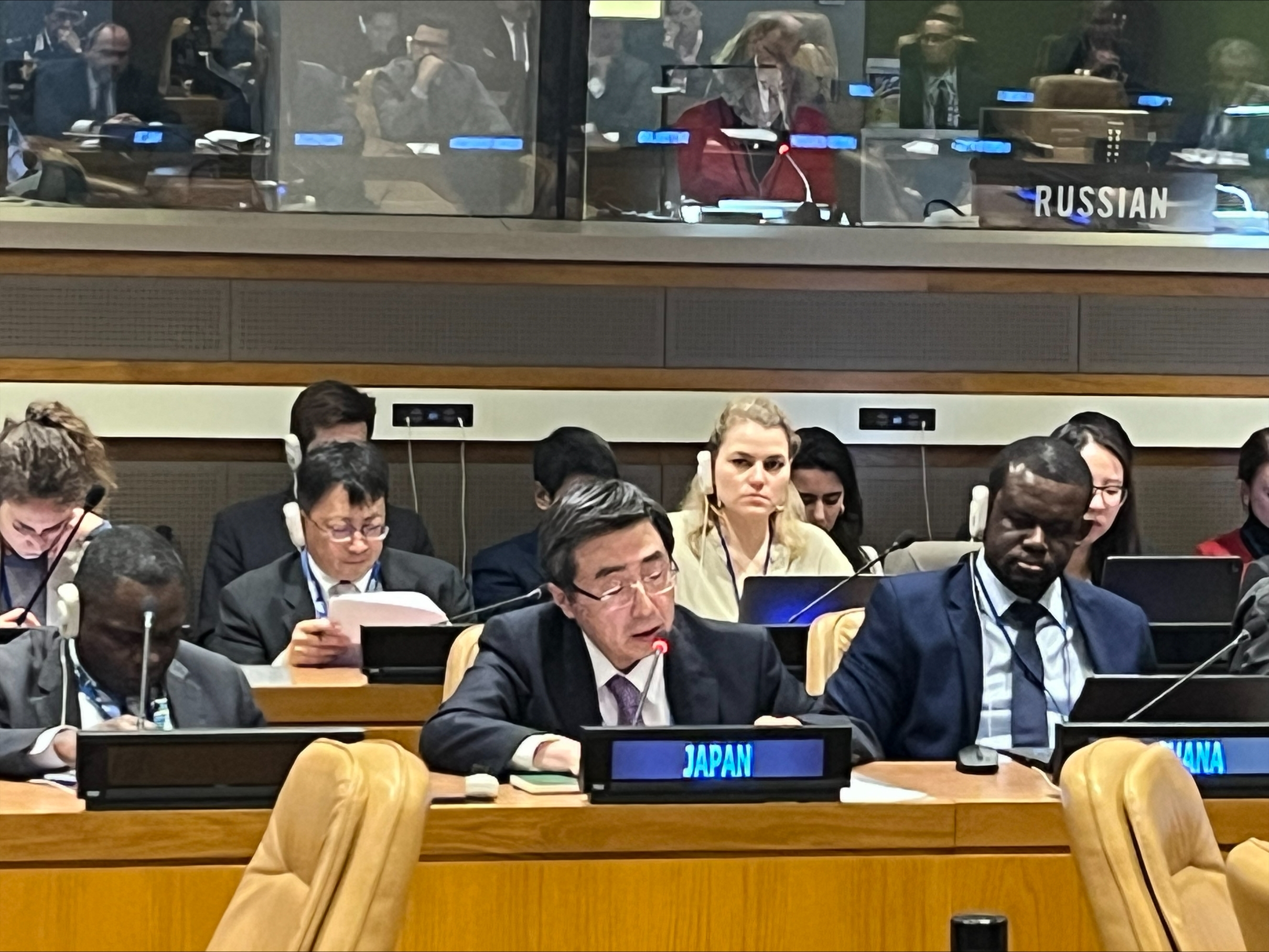Statement by H.E. Ambassador ISHIKANE Kimihiro, Permanent Representative of Japan to the United Nations, at the Security Council Arria-Formula Meeting “Protection of Cultural Heritage in Armed Conflicts”
2023/5/2
 |
 |
Mr. Chair,
I thank you for convening this important meeting today. I also thank the briefers.
As enshrined in the 1954 Hague Convention, “any damage to cultural property, irrespective of the people it belongs to, is a damage to the cultural heritage of all humanity”. This is a pressing concern since cultural heritage is neither replaceable nor completely repairable. This clearly illustrates the reason why we have to stand united in unequivocally opposing any unlawful destruction of cultural heritage, especially during armed conflicts.
I would like to stress that cultural heritage is a representation of rich and unique identity and history not only of the nation but also of whole mankind, hence, holds intrinsic value that we all should cherish. It is therefore deeply regrettable that the cultural heritage is still facing threats of conflicts around the world, not least in Syria, Ukraine and Yemen. Japan calls on all parties to conflicts to respect all relevant international instruments including the Security Council resolutions 2347 and the UNESCO 1954 Hague Convention and its two protocols, and join in our efforts to protect and preserve the cultural heritage under threat. Japan also calls upon Member States who have not yet done so to accede to the 1954 Hague Convention and its two protocols.
Japan has been deeply committed to the international efforts for the protection and preservation of cultural properties and heritage and has been supporting activities to restore and safeguard cultural properties around the globe. For example, to date, the Government of Japan has provided more than 4.5 million USD to assist the protection of cultural heritage in Ukraine. Also in Syria, Japan has been providing assistance to enhance the capacity of archaeologists and communities for the sake of preserving cultural heritage.
Furthermore, protection and restoration of cultural heritage damaged by armed conflict is a critical component of peacebuilding. Recovering the destroyed cultural heritage is a sincere desire of the people of the country, given that these have been an integral part of their lives and identity, and cooperation is needed to bring about their recovery. Keeping that in mind, Japan helped Cambodia, in coordination with international partners, to preserve and restore Angkor monuments, a symbol and national pride of Cambodian people. It is considered as one of the successful cases of safeguarding cultural heritage in the post-conflict setting. In this case, Japan attached great importance to supporting Cambodian people to restore their own cultural heritage. Culture and people are so deeply connected that protecting culture requires investment in people.
Mr. Chair,
A series of reports of the damages incurred by Russia’s attack on Ukraine’s cultural properties is deeply concerning. We pay tribute to UNESCO for extending continuous support to the Ukrainian authorities in protecting its cultural heritage properties across Ukraine. Along with the international community, Japan condemns Russia’s aggression in the strongest terms. Russia must immediately cease its war of aggression and comply with its obligation to refrain from any act of hostility directed against cultural property according to Article 4 of the 1954 Hague Convention.
To conclude, Japan reiterates its commitment to protect cultural heritage and contribute to sustaining peace through such efforts, together with Member States and the United Nations, starting with UNESCO.
I thank you.
